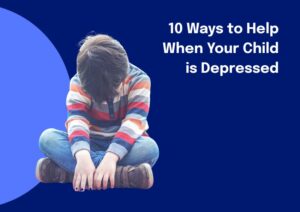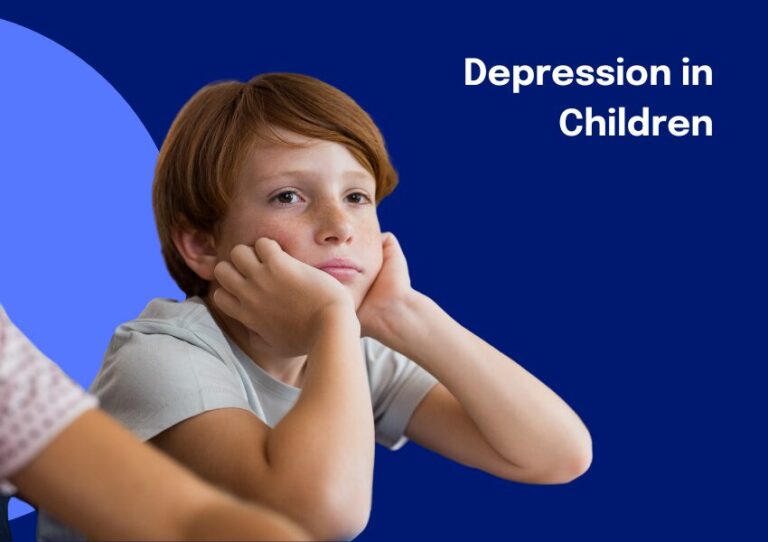10 Ways to Help When Your Child is Depressed
 Being a parent is rewarding but tough. One of the hardest things to deal with is your child’s pain. If your child is depressed, you probably are scared and feel helpless. There are ways that you can help your child, though.
Being a parent is rewarding but tough. One of the hardest things to deal with is your child’s pain. If your child is depressed, you probably are scared and feel helpless. There are ways that you can help your child, though.
1. Recognize that clinical depression is a disease.
Internalizing this fact will help your child in two ways. One, it will hopefully keep you from blaming yourself or your child. This is no one’s fault. Second, if you think of depression as a disease instead of a choice your child is making, you won’t say anything stupid like, “Why don’t you just pull yourself together,” or “Stop feeling sorry for yourself.”
2. Don’t freak out.
This will definitely not help your child. Clinical depression can be successfully treated more than 80% of the time. As long as your child has a good doctor and supportive parents, he or she has a very good chance of recovering. Notice that last part – while everyone with depression really needs a good doctor, supportive parents are absolutely critical for a child with depression.
3. Do your homework.
Read up about depression – symptoms, causes and treatment. The more you know, especially about treatment options, the more effectively you can advocate for your child in the health care system and at school. Read: Understanding Teen Depression or Learn more about symptoms and causes here: Depression in Children
4. Let your child know that it’s okay to be depressed.
Children tend to hide things from parents that they think will upset them. Make it clear to your child that nothing they could say is as upsetting to you as being unable to help them because they’re afraid to hurt you.
5. Talk to your child frequently.
This may be a tall order. Any parent who’s ever asked, “How was school?” and got the response, “Fine” knows that children can be reticent. When someone’s depressed, talking is often the last thing they want to do. Provide some low-stress, low-distraction opportunities, like taking a walk or preparing a meal together, for your child to talk to you.
6. Be your child’s advocate in the health care system.
Make sure that their doctor is knowledgeable, caring and someone who really listens. Take charge your child’s treatment. Ensure that your child keep appointments and takes the prescribed medication. You may have to be tough, but treatment, either medication or therapy or both, is the only thing that will make any difference.
7. Don’t be afraid of the “S” word.
You may be afraid to ask your child if they are having suicidal thoughts, assuming that you will put the idea in their head. Don’t worry. Either they are already having suicidal thoughts, in which case it may be a big relief to talk about it. If they haven’t, talking about it openly will allow them to bring the subject up again if this changes. How to talk to children about Suicide or Suicide Prevention
8. Encourage your child to socialize.
Even though someone who’s depressed may shun gatherings, be persistent. Contact with friends and family provides a support system that is essential to someone with depression.
9. Encourage your child to enter therapy.
Talk therapy, especially Cognitive Behavioral Therapy, can help your child break out of negative and self-hating thought patterns that are generated by depression. What Does Counseling Look Like?
10. Be patient.
This won’t turn around overnight. If you feel like you need help coping with the situation, you might want to try individual therapy or family counseling.


